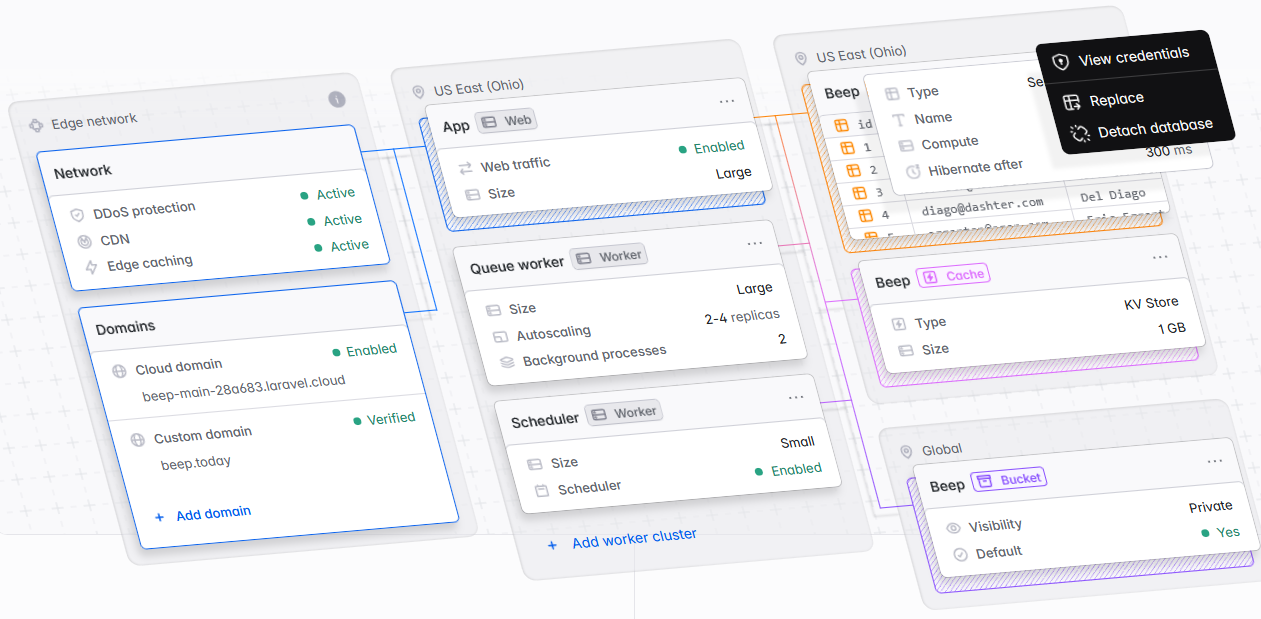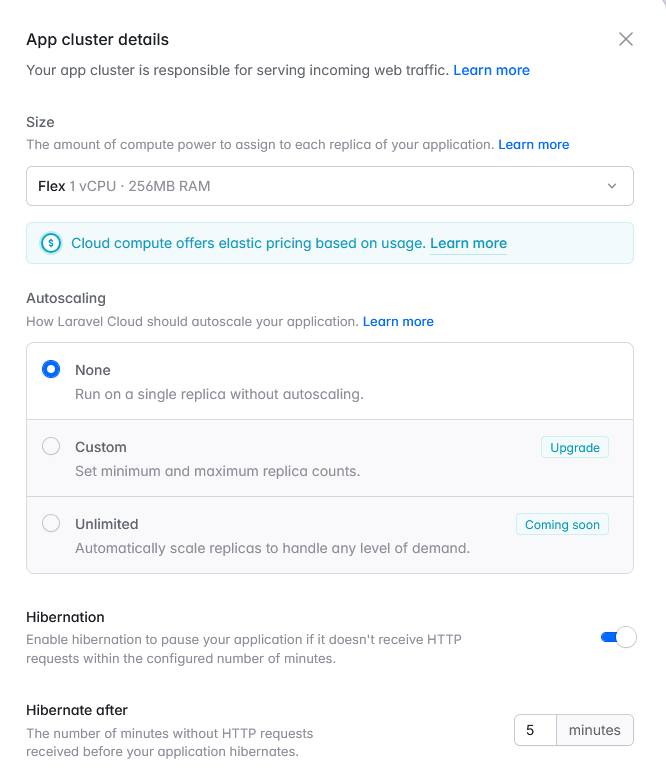
Laravel in 2025
We must ship.
- Taylor Otwell
If there's one way of summarizing Laravel's goal for 2025 is this quote by its creator, Taylor Otwell, when he spoke at the latest Laracon EU in Amsterdam - "We must ship". Whipping up a simple website with Laravel has been a "piece of cake" for many years now. "Basic" things like authentication, validation and database management have been ready for you out of the box, but to actually ship a product live, big or small, and for it to be available to everyone is a different story. But that is about to change thanks to Laravel Cloud.
Listen to the full speech here.
Laravel Cloud
Laravel Cloud claims to be "the fastest way to deploy and scale Laravel applications" and after trying it for the first time I have to say this statement seems 100% accurate. The barrier to entry is that low. But this isn't really surprising given that it's an official Laravel product, is it?
Deploying for the first time
To try it out, I decided to use one of my hobby projects, a simple note taking app built with Laravel + Livewire. After signing up and linking my GitHub account to Laravel Cloud I was literally just a few minutes away from watching my project go live.

After you create your app, you'll be presented with the page below. And here's the thing that'll blow your mind: if all you have is a static page (e.g. you don't need a database, etc) all you have to do is press Deploy and watch the magic happen. Laravel Cloud will will automatically create an environment for your app (you can create more environments for the same app if you need and link them to different branches of your repo e.g. staging and production), it'll run all the necessary building commands and in less than a minute your website will be live for the whole world to see.
In my case, I needed a database so I had to configure that first but after that, I was good to go.

How much does it cost?
Laravel Cloud isn't free. But it can get very close to it (< $5/month) if all you need is a place to host your hobby projects and if you configure things the right way. If you're not getting much traffic then you probably don't need a lot of compute power and you should definitely take advantage of the hibernating features in order to minimise costs where you won't pay for compute when your DB doesn't get any queries.
 NOTE: As of the writing of this post, Laravel Cloud only offers PostgreSQL and MySQL, of which only PostgreSQL has auto-hibernate; so make sure you choose that option.
NOTE: As of the writing of this post, Laravel Cloud only offers PostgreSQL and MySQL, of which only PostgreSQL has auto-hibernate; so make sure you choose that option.
Is Laravel Cloud worth it?
Yes! But also... no. Laravel Cloud isn't the only product within the Laravel ecosystem aimed at allowing developers to deploy their projects. Forge, Envoyer and Vapor are all valid alternatives, each with their own advantages and disadvantages. And Laravel Cloud isn't really meant to replace all of those. It arguably provides the most seamless experience where you pretty much don't have to configure anything to see your project live. But, for many developers, that may actually be a negative point since some prefer to have more control and access to the server where their application is running. It's up to you to decide which tool you prefer.